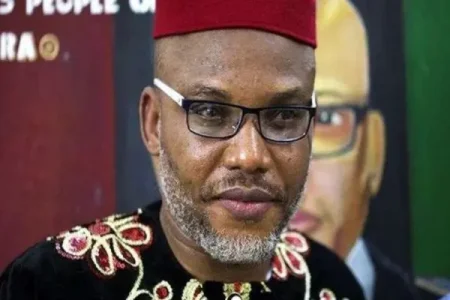
In Nigeria's tense legal and political landscape, one verdict has cut through the noise. A federal judge has rejected statements and videos presented by the country’s national security agency against IPOB leader Nnamdi Kanu, citing concerns over coercion and legal safeguards. The decision marks not just a win for the defendant, but a moment of reflection for Nigerian law and democracy.
Nnamdi Kanu’s trial reached a turning point this week after the court ruled that key DSS evidence violated legal safeguards and could not be used.
- A federal court ruled that three statements and two videos presented by the DSS are inadmissible.
- The court agreed with Kanu that these were obtained under duress while in solitary confinement.
- The judge emphasised that confessions must be voluntary and with legal representation.
- A trial-within-trial was held to determine the voluntariness of the evidence.
- The ruling weakens a significant part of the prosecution’s case.
As Kanu’s trial continues, questions now loom over what remains of the prosecution’s case — and whether justice can prevail if process is ignored.

![[Full List] Nigeria’s Top 25 Universities Revealed - See Who’s Up, Who’s Down](/data/attachments/217/217336-967fd9e0ed9f10dc305bfc5d61458cb3.jpg?hash=TUqXL4XIJp)

